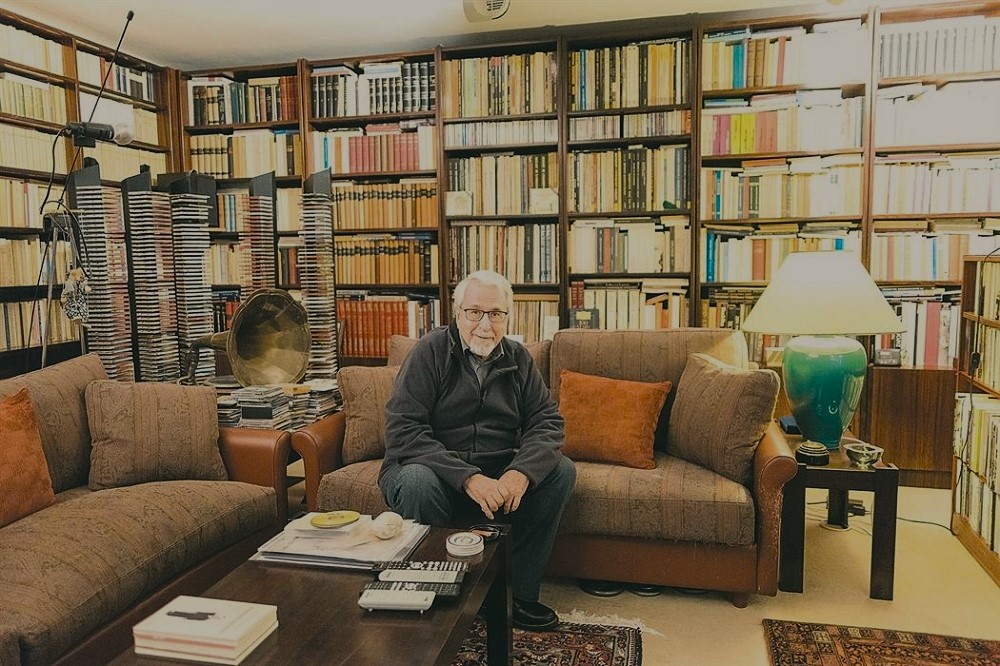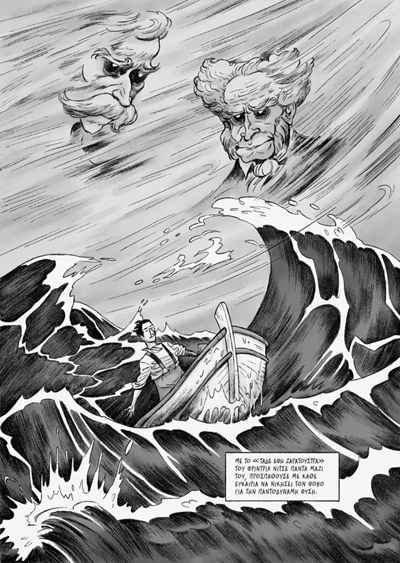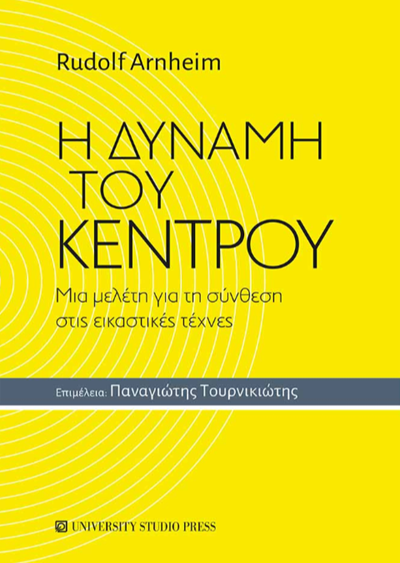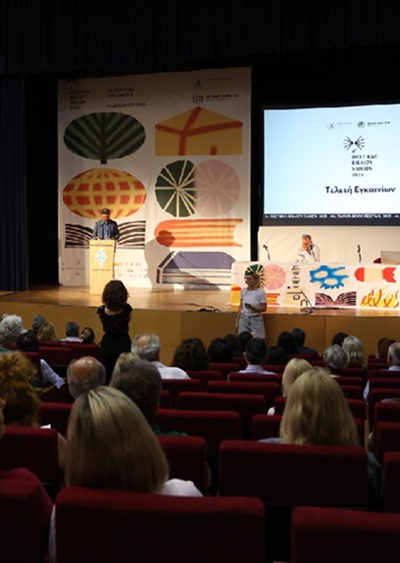
Acquisition of National Library of Greece
In June 2019, the late Director General of the National Library of Greece (NLG), Filippos Tsiboglou, informed author Nikos Dimou that the National Library of Greece had gladly accepted his request to donate his collection of books, writing to him: “The special nature of the books in your collection, not only as content but also as objects or works of art, imposes and allows us a distinct approach. Based on our discussions so far, we have concluded that the books will be included in the NLG’s non-lending collection; they should be visible, but at the same time, access by the public should be controlled. We concluded that the most suitable space is on the 3rd level of the large Stavros Niarchos Reading Room, in the upper tier, where sufficient space will be created from the outset on the shelves (250 current meters), so that all the books of the collection can be placed, even if they are received by the NLG[…] Filippos Tsiboglou, appreciating the special value and rare elegance of the collection of Nikos Dimos, the fruit of many years of collecting effort, took all the necessary actions for the NLG to receive it. A large part of the collection of Nikos Dimos has already been incorporated and cataloged in the NLG and will soon be able to be displayed to the public.
It is with great pleasure that we publish below a text by Nikos Dimos himself for his collection:
Nikos Dimou
My libraries
Some people identify with their books. I’m one of them. And because I have often found myself in the face of relevant questions, I say to give my readers a text that will illuminate the past and the future. After my death( I hope it will be late), they will become the property of all Greeks. I have by now bequeathed them to our new National Library.
First, a basic clarification: I use the plural because it is not a library. They are separated chronologically and linguistically.
The first is my childhood library. Most of her books were in French. The classic and famous Bibliothèque Rose predominated. My father was buying new volumes from the Kaufmann Buchhandlung (which in German means merchant). There must have been more than twenty of them.
Why French? because it was the first language I learned to speak and read. I had a French-speaking governess, Mamzel Agnes, who raised me from an infant.
Of course, with time, the Greek language began to increase. First Jules Verne in the large format editions of Sideris with the full illustration of the French series, translated into Impeccable Katharevousa. Fortunately, at home there was a long series of volumes of the magazine “The Formation of Children,” where Grigorios Xenopoulos taught me to think and write in the Municipal School. I also remember a “translation” of Papadiamantis’ short stories in demotic from Georgia Tarsoulis. Although the wonderful and poetic purifying of the original was missing, a Skiathos-like aroma survived in the adaptation as well.
I learned to read and write two years ago. And of course, by going to high school, I soon discovered the college library, so I no longer had to buy books.
All the books in my childhood library were lost when I left to study in Germany. I had bequeathed them to my little nephews, who wiped them out within six years.
My “serious” present library began on a certain date: December 6, 1950. A somewhat distant relative (he had married my brother-in-law’s sister) came home on my feast day loaded with over 40 books. All the classics of French literature are available in the standard editions of Hachette, and in English, everything by Shakespeare and Byron. These books still exist, and next to the fine editions of Pléiade, they adorn the “French department.”
Because we arrived today, my own library is divided into four language sections: Greek, French, English, and German. This is important because the National Library, which will inherit them, had mainly Greek-language books until today. Its regulation provides that it must have as many Greek books as have been translated into foreign languages. That’s tough. Example: My book “The Misery of Being Greek” has been translated into eleven languages. But the National has only one translation: in German. My three additional foreign libraries will greatly enrich it.
Don’t just ask me how many books I have; the last time I counted them, there were 24,000, but that was 20 years ago, and new arrivals come every day. Have I read them all? Of course not. Libraries are not shelves for the nice books we shop for and read. They are stores of knowledge. E. g. Nietzsche’s” everything” is 15 volts. They don’t read like novels, but you’ve got to have them all because at some point you’ll want to find a certain passage.
Computers have begun to do this work, but it will take a long time to complete, if it is ever completed, since millions of books are published every year.
The most important feature of my own collection (and the most expensive) is the “books-works of art”. I mean books not sold in bookstores but only to registered subscribers, circulated in a limited number of numbered copies, illustrated by great painters, and resold through art houses (Sotheby’s and Christie’s) by auction. I have already sent to the NLC a few hundred such books from the Folio Society (of which I was a forty-year member) that every visitor can admire. In the meantime, their value will multiply over time.
The rest after death is…







Leave A Comment